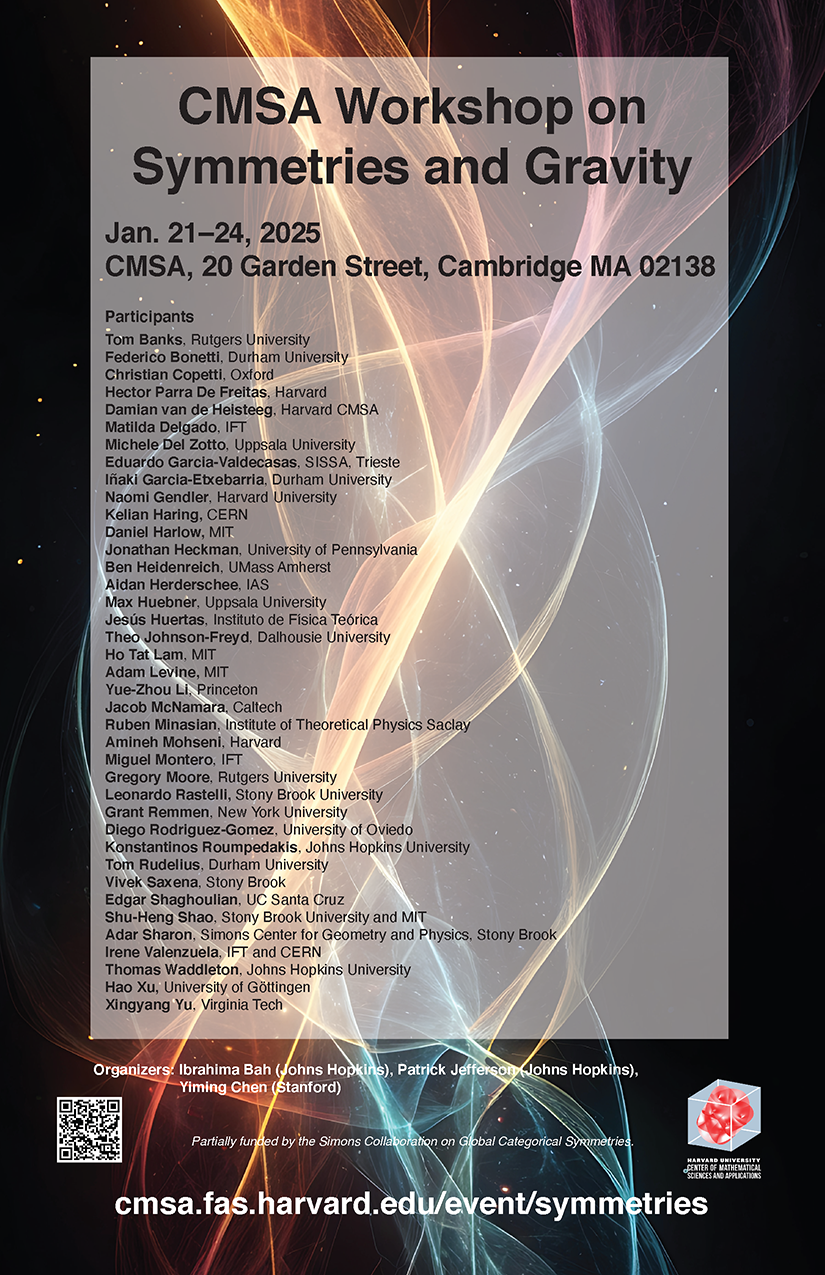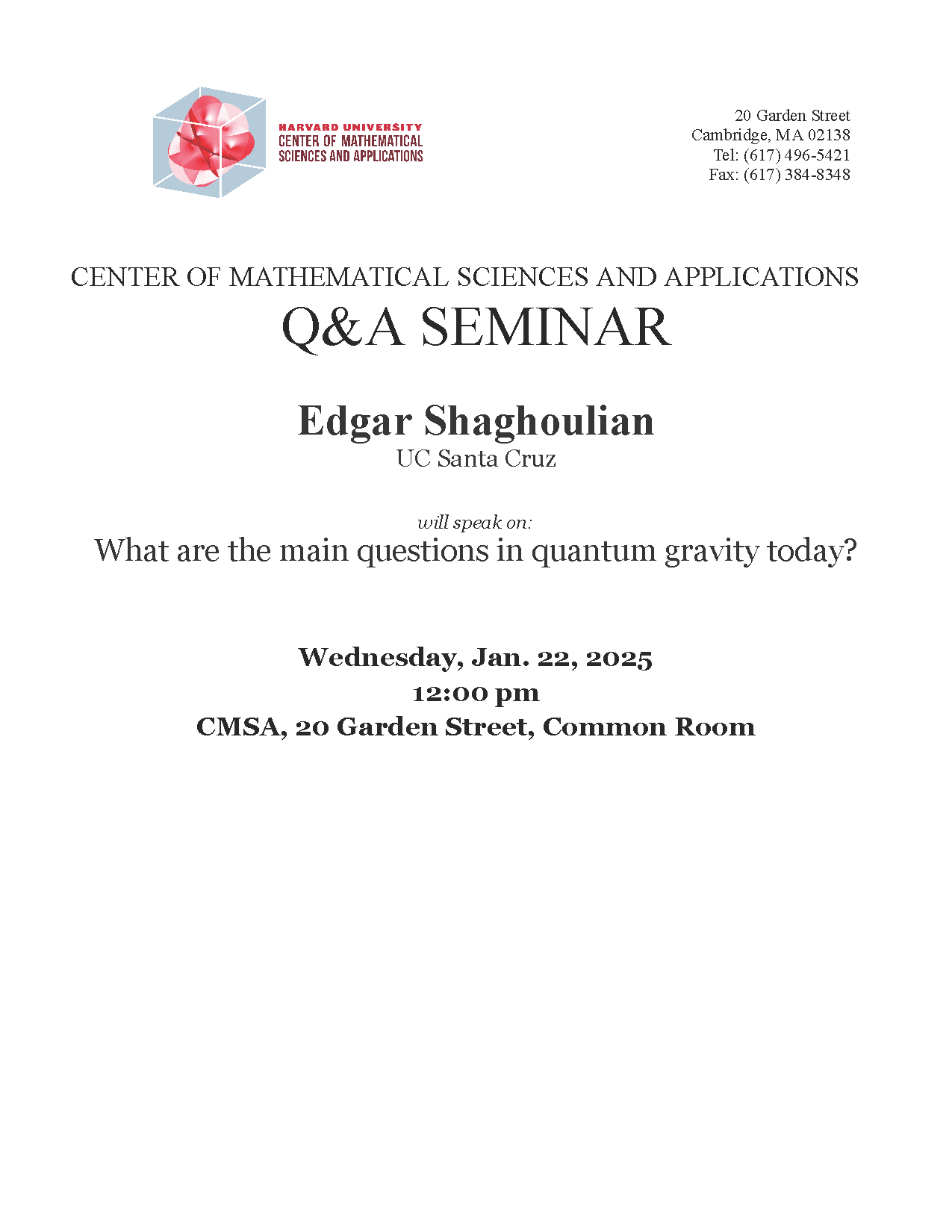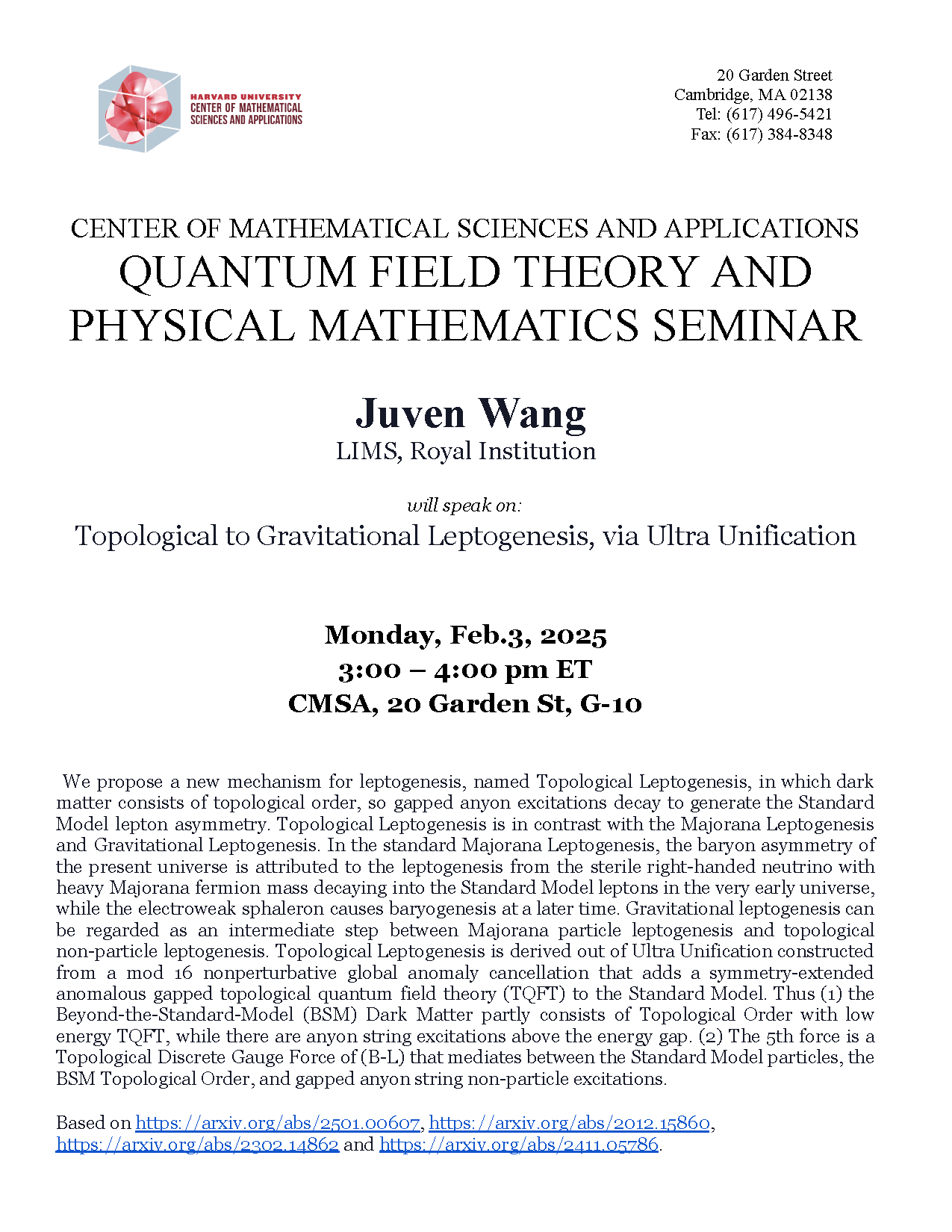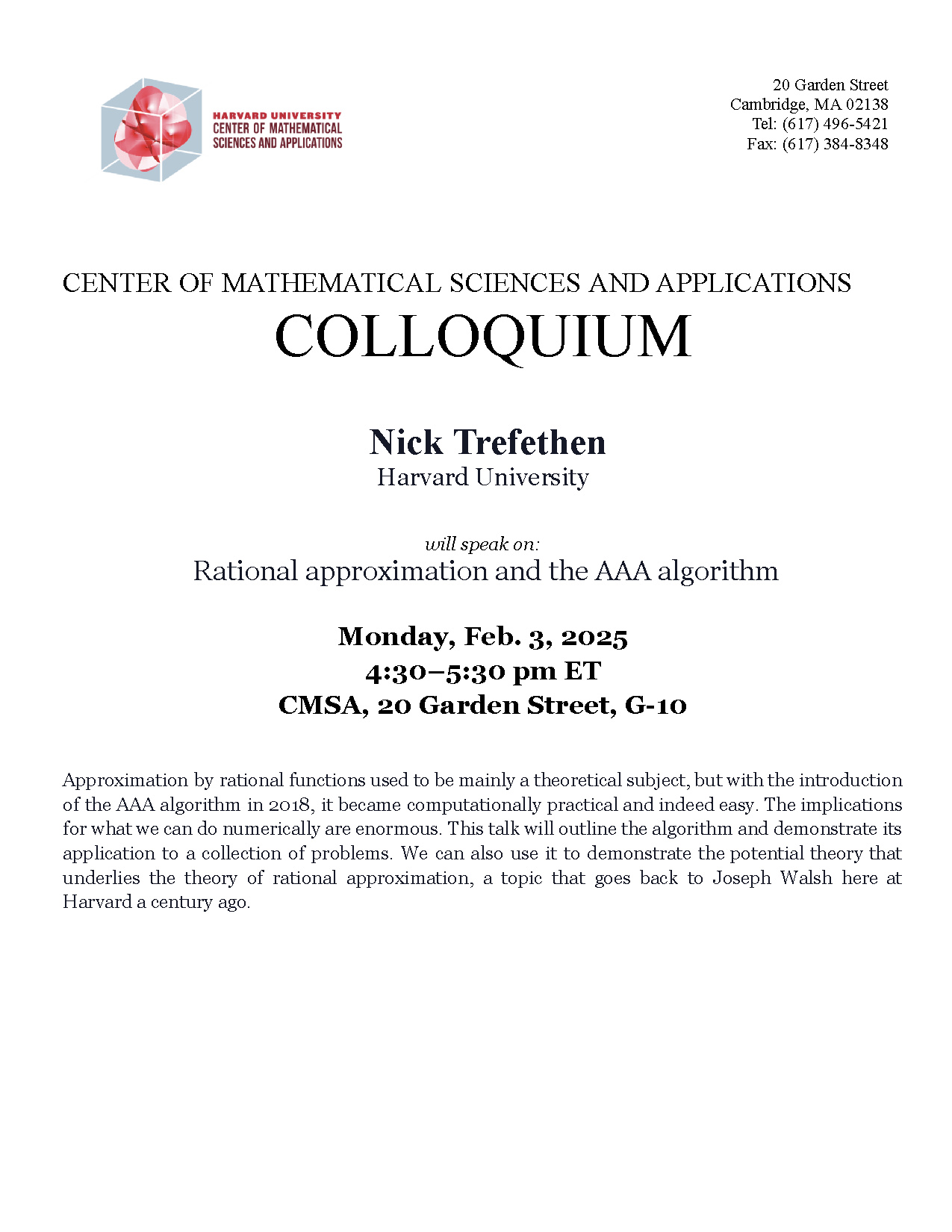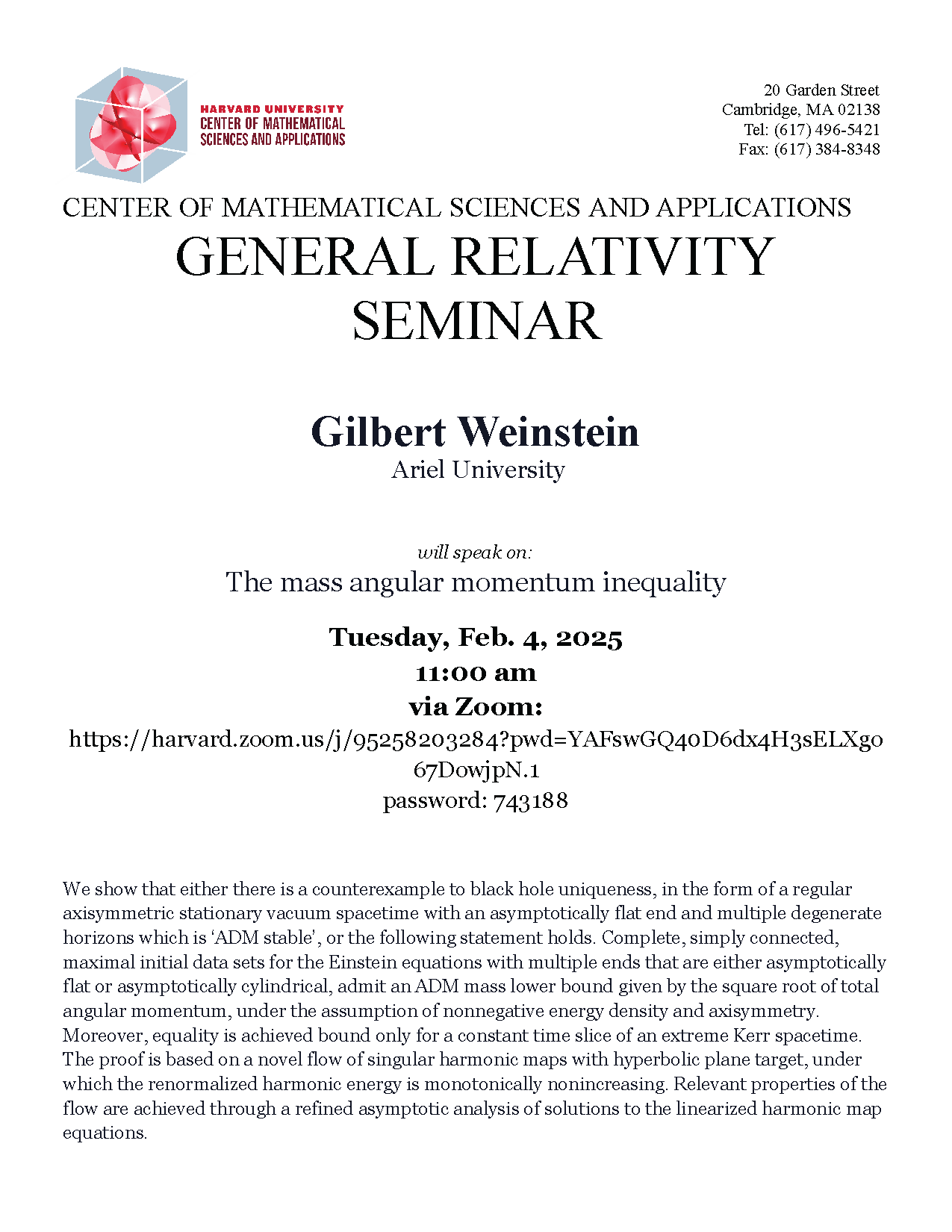Tyurin degenerations, Relative Lagrangian foliations and categorification of DT invariants
Virtualhttps://youtu.be/O2U7elI0mbo Mathematical Physics and Algebraic Geometry Seminar Speaker: Artan Sheshmani (BIMSA) Title: Tyurin degenerations, Relative Lagrangian foliations and categorification of DT invariants Abstract: We discuss construction of a derived Lagrangian intersection theory of moduli spaces of perfect complexes, with support on divisors on compact Calabi-Yau threefolds. Our goal is to compute deformation invariants associated to a fixed […]


